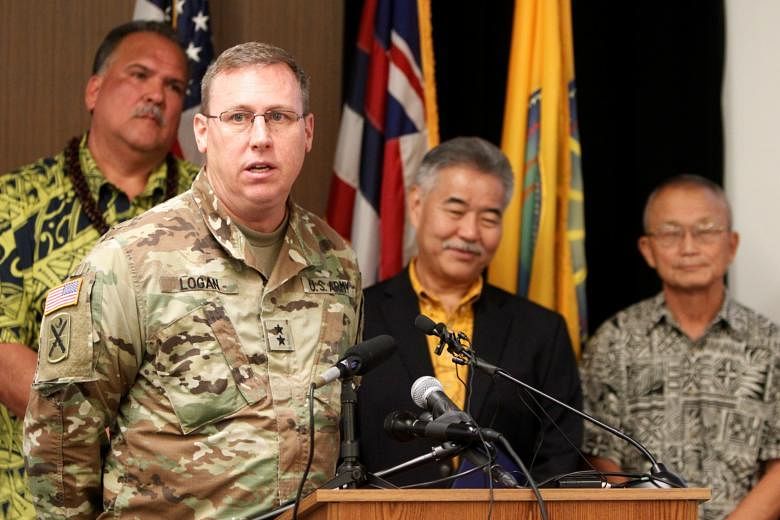HONOLULU (NYTIMES) - The leader of the Hawaii National Guard told state lawmakers that he informed the governor that a panic-inducing missile alert was a false alarm two minutes after it had been sent to mobile phones statewide.
The leader, Major General Arthur J. Logan, made the revelation about the Jan 13 episode at a hearing Friday during which legislators raised concerns about why that critical information was not conveyed to the public more quickly.
Amid the chaos and confusion, it took officials 38 minutes to send a second message saying the original message was an error. Officials have said a flaw in the alert system delayed the distribution of the correction.
"The false alarm has identified so many gaps in the system," Della Au Belatti, majority leader of the Hawaii State House, said in a phone interview Saturday. "We won't see this kind of communications breakdown again."
A spokeswoman for Governor David Ige did not immediately return an e-mail seeking comment on Saturday.
Logan, who also directs the Hawaii Emergency Management Agency, learned the alert was a false alarm after speaking with the US Pacific Command, an agency spokesman, Richard Rapoza, said Saturday. Logan called the governor at 8.09am.
It took another 11 minutes for the emergency management agency to post on Twitter that there was "NO missile threat to Hawaii."
Ige reiterated that message in his own Twitter post four minutes later. At 8.45am, the message correcting the missile threat lit up mobile phones.
Rapoza said that in the critical minutes after the missile alert went out, he and several other government employees simultaneously tried to confirm it was a false alarm. Once they did, some began calling and e-mailing the news media, he said.
The atmosphere that morning was "tremendously difficult" and one in which it was easy to "lose track of time," he said.
"I don't think there was any dereliction or misjudgment" on the part of the governor, Rapoza said. "I think he did the very best he could." Logan "was simply telling the truth" at the hearing with lawmakers, Rapoza added.
Still, the emergency alert set off widespread panic in a state already on edge because of escalating tensions between the United States and North Korea.
Officials said the alert was the result of human error and not the work of hackers or a foreign government. Rapoza previously said the mistake occurred during a shift-change drill at the emergency command post when "someone clicked the wrong thing on the computer."
Ige has called what happened "totally unacceptable" and has apologised for the panic it caused.

